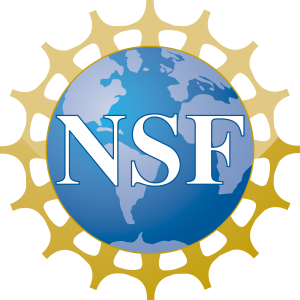 The National Science Foundation (NSF) has issued the following Dear Colleague Letter calling for proposals that will advance STEM learning and explore solutions to global challenges.
The National Science Foundation (NSF) has issued the following Dear Colleague Letter calling for proposals that will advance STEM learning and explore solutions to global challenges.
Dear Colleague:
The National Science Foundation (NSF) is the place where science, technology, engineering, and mathematics (STEM) discoveries and discoverers begin. Nationally and internationally, cities and communities face deeply interlocking physical, social, behavioral, economic, and infrastructural challenges. For example, we face complex challenges in providing sufficient food, clean water, and energy for all, while sustaining a healthy environment. Solutions will require ingenuity and expertise from across all domains, including the sciences. Learners can be Change Makers, identifying and working to solve problems that matter deeply to them, while simultaneously advancing their own understanding and expertise. Research shows that engaging in real world problem solving enhances learning, understanding, and persistence in STEM.
The Directorate for Education and Human Resources (EHR) at NSF invites innovative research and development proposals to advance STEM learning, while exploring solutions to multidisciplinary or transdisciplinary global challenges in either formal or informal settings for learners of all ages and prior educational experience, including learners traditionally under-represented in STEM. Research and development efforts should contribute to both the STEM and STEM education knowledge bases. Example topics include:
- academic civic engagement or research opportunities for low-income students to work on increasing the availability of fresh vegetables or potable water locally or internationally;
- creation of a network of course-based research experiences to inform STEM policy work;
- novel use of social media and flash mob strategies to initiate community Change Maker teams;
- crowd-sourced solutions to clean energy challenge through global, public participation in science.
Research and development projects creating toolkits, micro-credential systems, or other resources that will enable learners to identify and collaboratively work on problems of personal interest are welcome. Investigators are encouraged to share learning environments that result from this work as digital, open education resources for the community.
Mechanisms of Support: Proposers are invited to submit their proposals to one of the following programs, in accordance with program solicitation requirements. Regardless of program, the title of each proposal should begin with “Change Makers”:
- For informal learning environments, submit to the Advancing Informal STEM Learning program (AISL, NSF 15-593), due November 8, 2016.
- For PreK-12 learning environments, submit to the Discovery Research PreK-12 program (DRK-12, NSF 15-592), due December 5, 2016
- For undergraduate learning environments, submit to the Improving Undergraduate STEM Education: Education and Human Resources program (IUSE: EHR, NSF 15-585), due November 2, 2016 for Exploration and Design Tier for Engaged Student Learning & Institution and Community Transformation proposals and January 11, 2017 for Development and Implementation Tiers for Engaged Student Learning & Institution and Community Transformation proposals.
- For further guidance on identifying an appropriate program for Change Maker proposals, contact changemakers@nsf.gov.
Questions should be addressed to: changemakers@nsf.gov. This DCL is expected to be in effect from June 15, 2016 through March 1, 2017. All proposals should be submitted by in accordance with individual program deadlines.
Sincerely,
Joan Ferrini-Mundy
Assistant Director
Directorate for Education and Human Resources
Earlier this year the Computing Community Consortium (CCC) Education Task Force released a whitepaper on The Importance of Computing Education Research, which recognizes the importance of creating a research ecosystem around computer science education to ensure that the demand for high quality computing education can be met and that the diversity of students generating that demand are well served.









